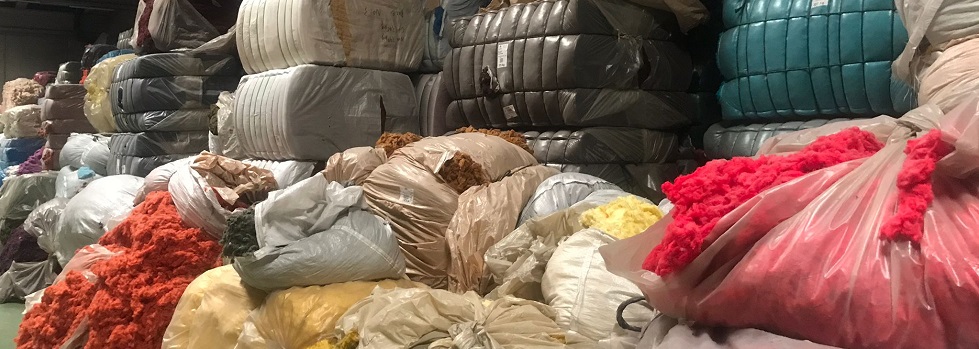Europe has started lately a number of legislative measures with the aim to push the textile industry to transition towards the circular economy model, which includes the incorporation of the reuse and recycling of textile materials and products. This has put traditional, long-established textile recycling companies on the map. Now these companies, which have been carrying out quite an unrecognized business, have suddenly become companies of the future.
The cluster of textile factories in Olot (Girona province in Spain) includes companies like Pagès Valentí and Hilosa (which spin thread from industrial textile waste), or Triturats La Canya (which produces shredded fibers from textile waste). It represents one of the most important clusters of recycled textiles in Spain, together with some companies in Alicante, like Hilaturas Ferre o Belda Llorens.
Although everything seems to indicate that Europe will soon need to greatly increase the number of textile recycling factories, some companies are reacting to these indicators with caution. Why is that? Well, first because they might not be too confident about the real will of the industry as a whole, or that the interests of the major fashion groups allow this recycling boom to benefit their companies in the long run. Secondly, because the worldwide competition for recycling is quite considerable.
Lastly, there is the far from insignificant fact that the present activity of these companies fundamentally consists of mechanical recycling. This means that their main raw material is industrial waste coming from garment and textile factories, rather than from finished products. The current activity does not require separating buttons, zips or other elements of the kind. Recycling finished garments involves more processing before the clothes can become fibers ready to spin, beginning with a global system of used clothes collection that is still at its early stages.
The traditional recycling sector is still reluctant to transform their businesses for the recycling of finished products. We are seeing some pioneers like Triturats la Canya slowly opening up to the post-consumer recycling, they admit that classifying and cleaning finished products increase their costs. The long experience of these companies, after generations dedicated to the recycling of textiles, makes them some of the best prepared to capitalize on the opportunities that the new legislations on sustainability will bring. It goes without saying that technology plays and will continue playing an important role in this transition, facilitating the process of separation and sorting thanks to AI. Still, there is a long way to go yet.

